Google Autocomplete stands as a cutting-edge tool for predicting search engine inputs globally. Known as Autosuggest, this feature showcases the most frequently searched phrases following an initial entry in Google’s search bar. Visually, it appears as follows: 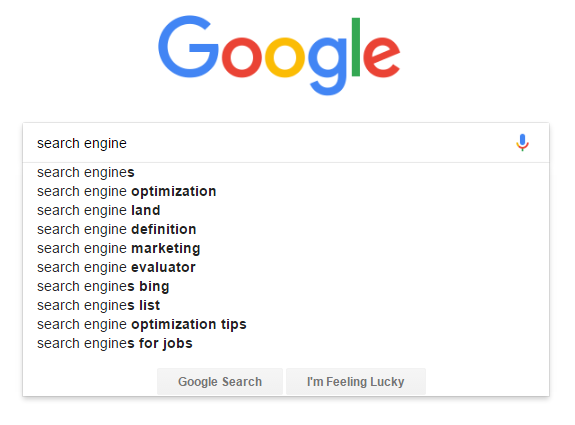. This function primarily reveals the most popular search queries related to specific terms.
In the example provided, Google indicates that when users begin typing “search engine,” the most common follow-up searches are “search engines,” “search engine optimization,” and “search engine land,” in that order. This prompted WebFX to investigate a long-standing curiosity: What do people want to know about each state in the U.S.? Leveraging Google Autocomplete, we delved into this topic.
Please note: Google’s search results and Autocomplete can evolve over time, so some of the findings may not be accurate when you read this.
Our initial approach was straightforward. We typed the name of each state and observed the #1 Autocomplete result. Here’s what we discovered: 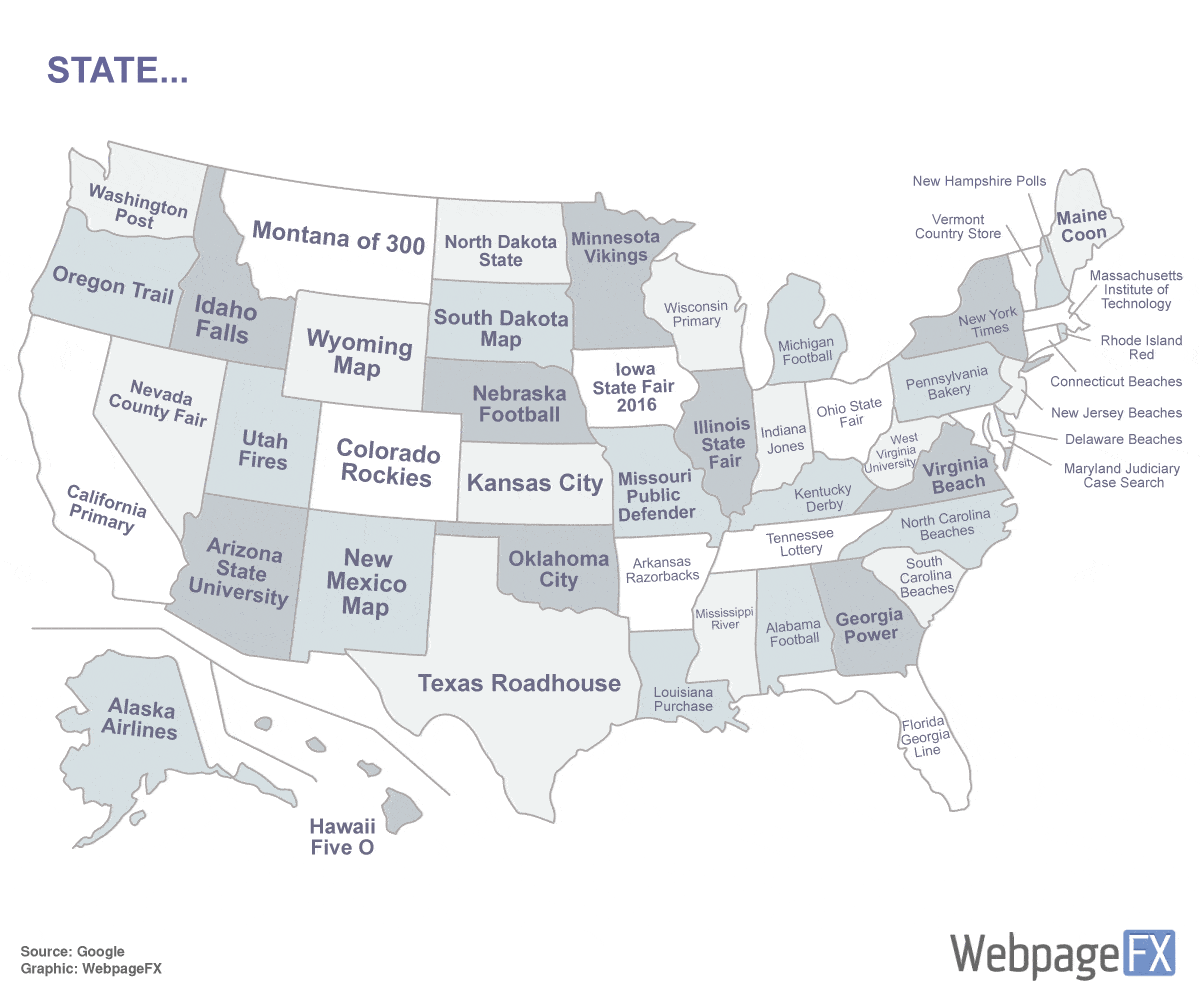.
For the most part, the Autocomplete results for state names provided general information about the state, such as a university, location, map, sports team, or iconic state event. In some states, political occurrences garnered more interest, as evidenced by the “Wisconsin Primary” and “California Primary” entries.
However, certain states were overshadowed by more popular search terms. For instance, Kansas’s most searched term was “Kansas City,” which spans across Kansas and Missouri. Additionally, “Indiana Jones” took precedence over the state of Indiana, as the fictional character claimed the Autocomplete battle. Some states were associated with brands, such as “New York Times” and “Texas Roadhouse.” Rhode Island was notably recognized for “Rhode Island Red,” a chicken breed.
One state, Maine, was particularly famous for its cats, with “Maine Coon” being the most searched term beginning with “Maine.” Lastly, the term “Missouri Public Defender” stood out, likely due to the high demand for public defenders in Missouri, where they are underpaid and the state ranks #11 in the U.S. for violent crime.

Our subsequent search focused on the term “Does [state]…” This yielded a mix of informative, humorous, and perplexing results: 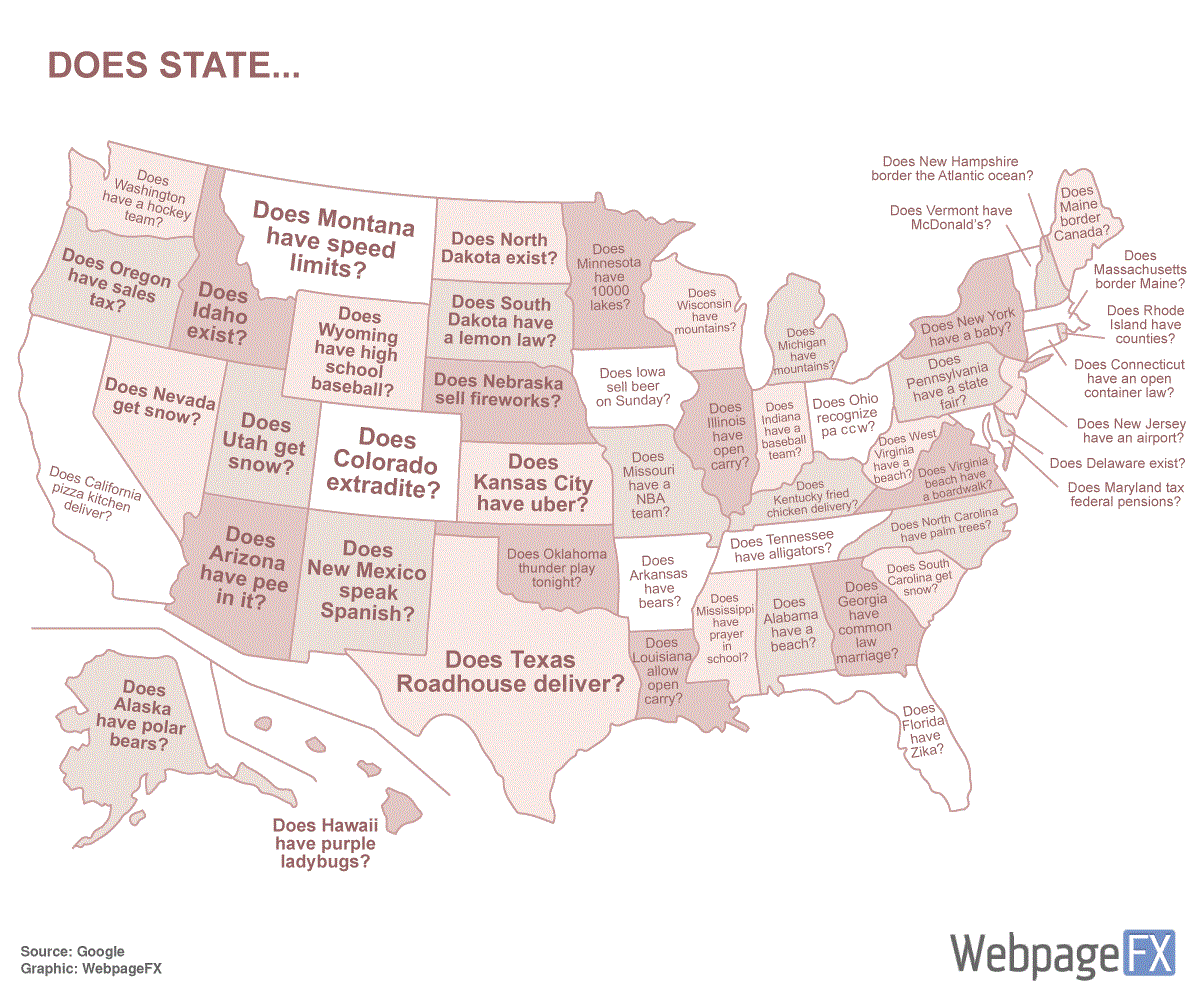.
These searches ranged from the practical (e.g., “Does Minnesota Have 10,000 Lakes?”) to the bizarre (“Does Arizona Have Pee in It?”), and even delved into brand-related queries (e.g., “Does Texas Roadhouse Serve Alcohol?”).
Our next search query was “Is [state]…” This resulted in a variety of questions concerning geography, politics, state law, and living conditions: 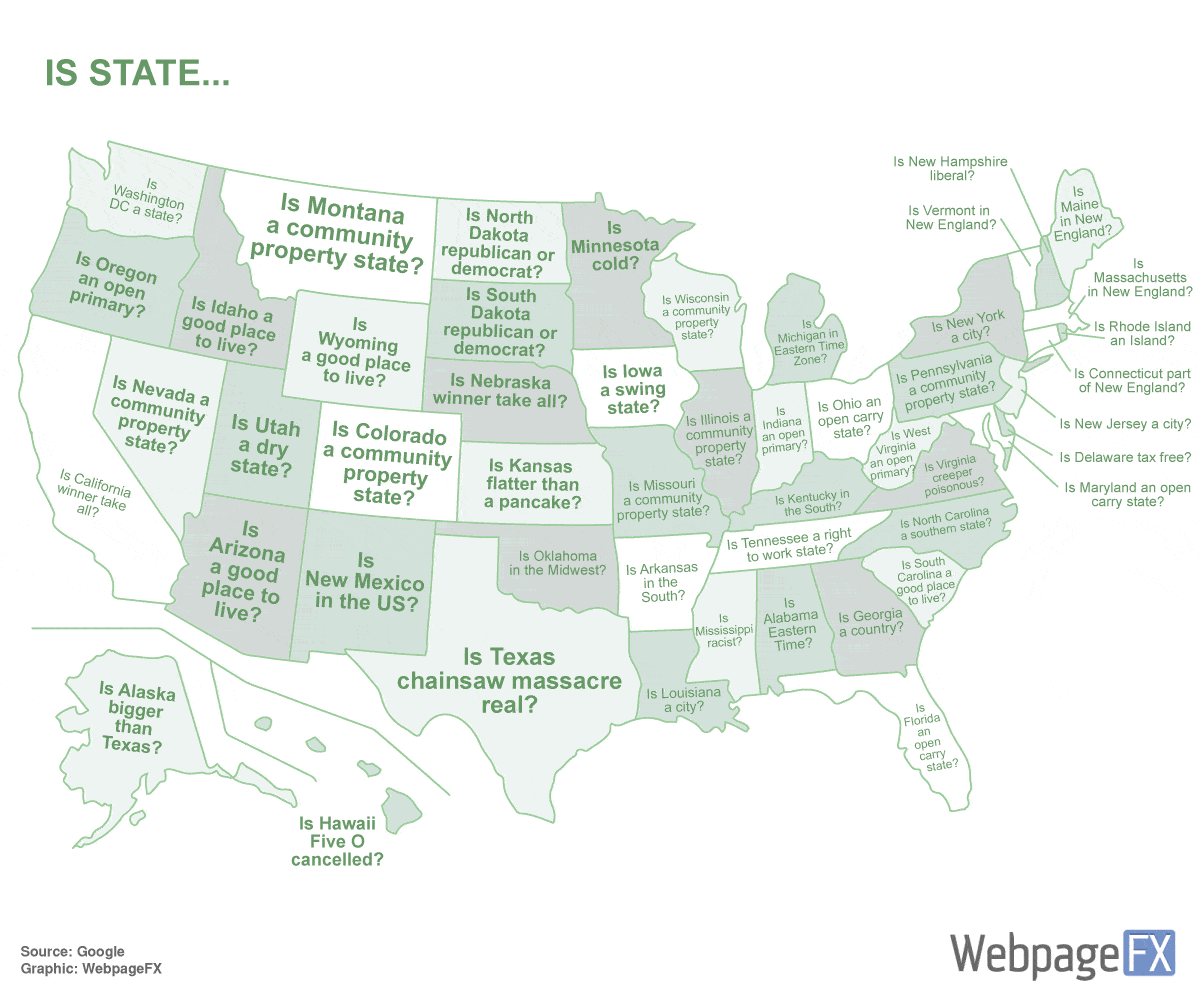.
Notable queries included “Is Alaska Bigger Than Texas?” and “Is New Mexico in the US?” The search “Is Kansas Flatter Than a Pancake?” provided a literal answer, with Kansas being proven to be flatter than a pancake. The query “Is Mississippi Racist?” sparked a discussion on stereotypes and historical context.
The search “Why Does [state]…” revealed a diverse range of questions, from geological inquiries (“Why Does California Have So Many Earthquakes?”) to historical conflicts (“Why Does Montana Hate the FBI?”) and political structures (“Why Does Nebraska Have a Unicameral Legislature?”): 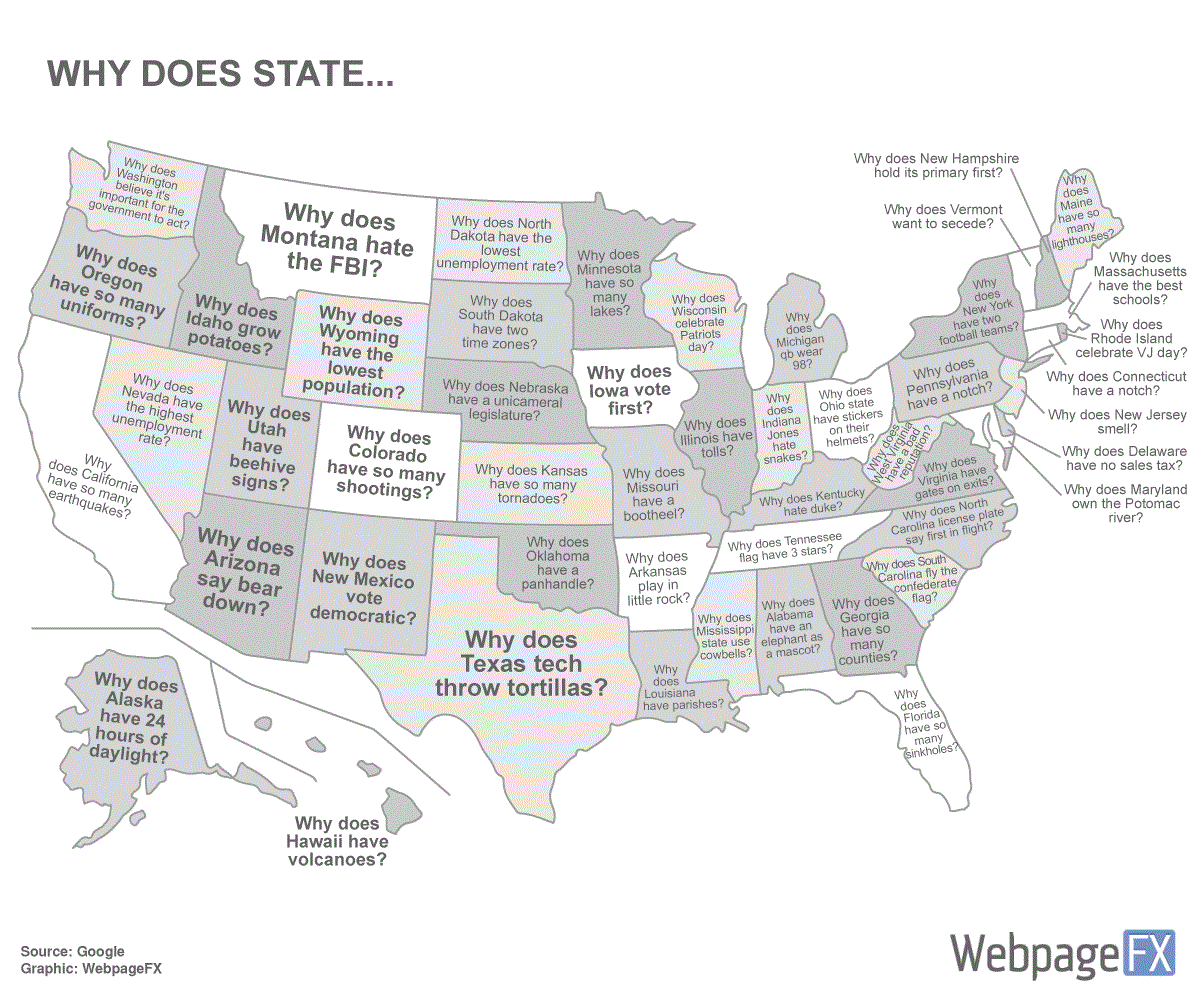.

Lastly, the search “Should [state]…” provided insights into people’s opinions and suggestions for states, such as “Should Utah Know” and “Should Saudis Fear North Dakota”: 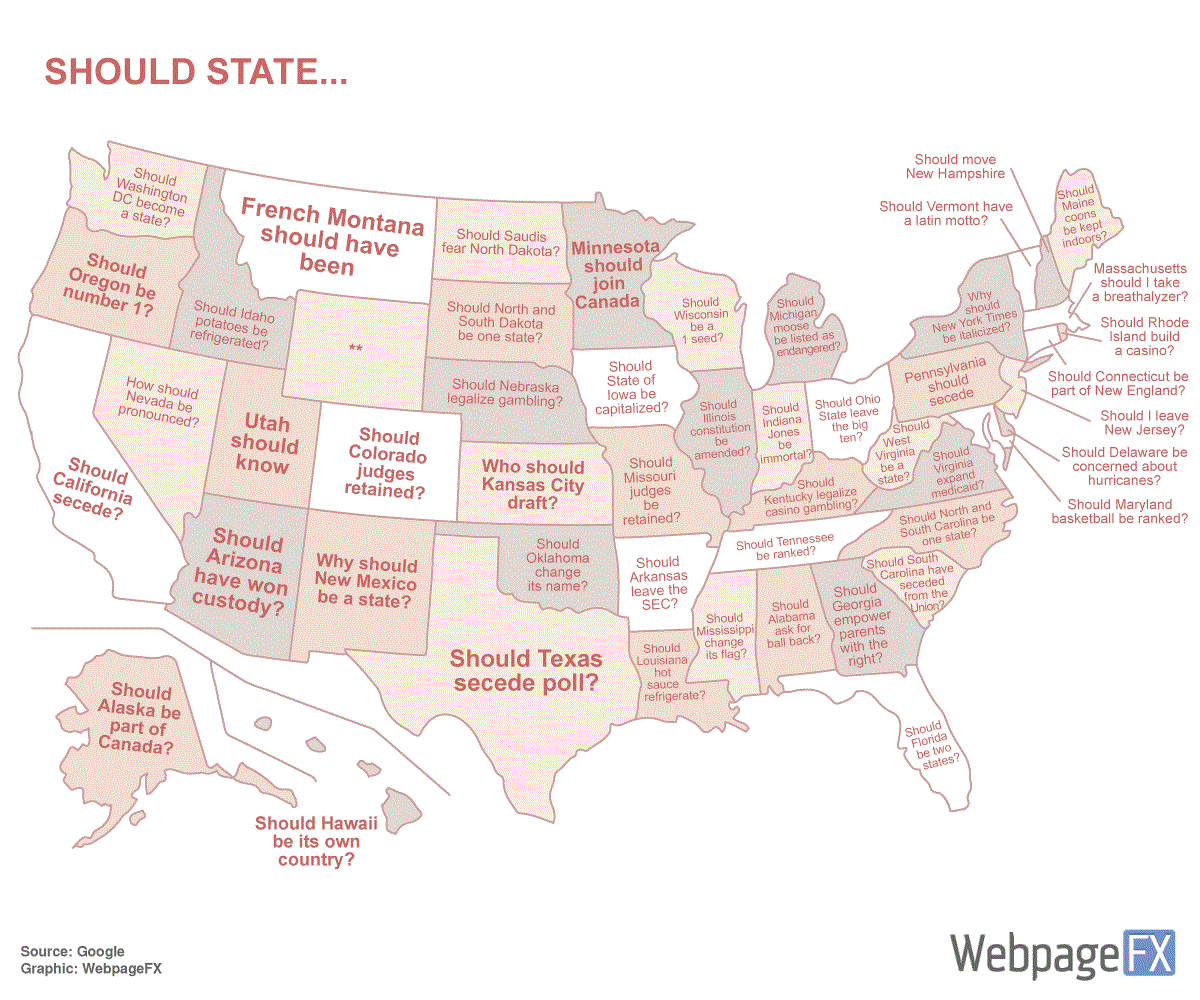.
Overall, these Google Autocomplete searches shed light on the diverse interests and questions people have about the United States’ states.











